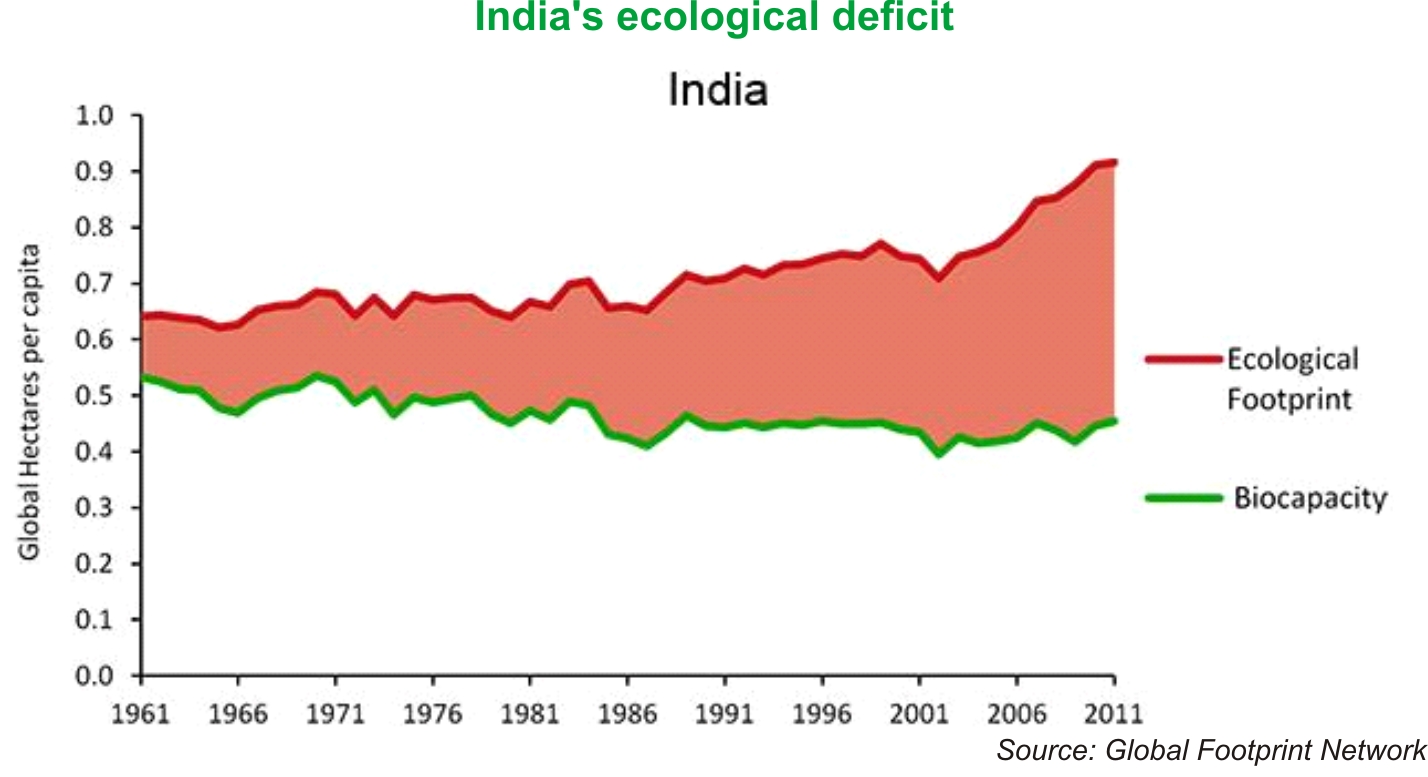|
Economic Valuation of Nature
People,
Businesses and Economy India's ecological footprint (the amount of productive land and sea area required to produce the resources it consumes and absorb its waste) is now over double its bio capacity. This results in problems like collapsing fisheries, diminishing forest cover, depleting fresh water systems and building up of carbon dioxide emissions, to name a few. India is depleting its ecological assets to support its economic boom and the growth of its population. This implies that business and government intervention are urgently needed to reverse this trend, and ensure a sustainable future in which India remains economically competitive and generates better social and environmental outcomes. One such intervention is valuing the ecosystems we utilise. Both economic and non-economic valuation techniques of doing this are relevant and important. However, decision makers with the power to protect and manage natural resources often have to make trade offs, which involve taking economic decisions, which are made without fully accounting for what will be lost- usually public goods and services from ecosystems and with a one-sided representation of what is gained- private sector profits and employment. Hence economic valuation which creates recognition and representation of our ecosystems can prove to be a useful way of justifying and setting priorities for policies, legislations and practices that protect or restore ecosystems and their services.
This can be illustrated by the example
of establishing a Net Present Value (NPV) of forests in India. Under a
1980 law, when forestland is diverted for industrial use, the project
developer has to pay for compensatory afforestation and the Net Present
Value (NPV) of the forest, to make up for the loss in ecosystem. The
government has currently accrued over Rs 40,000 from these sources. NPV
is a monetised value of forestland, which is calculated for a period of
50 years and is paid by the user agency to compensate for the loss of
tangible and intangible benefits flowing from such lands. At present,
the government charges Rs 4.38 lakh to Rs 10.43 lakh per hectares (ha)
NPV, depending on the type and density of forest. This money is to be
utilised for compensatory afforestation, as well as the general
afforestation programme run through the Green India Mission and will
help India achieve its target of 33% forest cover. Despite its benefits, this tool is contentious and often criticised by those who feel there is risk that it will lead to the 'privatisation' and 'commodification' of nature and that society should appreciate the intrinsic value of nature i.e. nature for its own sake. While this moral argument is valid, it has unfortunately failed to gain the traction required to generate positive trends and has led us to a situation where we have no choice but to change the argument to a more realistic economic one. It is high time we stop thinking of the environment as something that needs to be traded off for economic development and recognise that it is in fact essential for economic growth. This recognition is the foundation of building a truly green, fair and inclusive economy where ecology and economics go hand in hand. However, we need tools to build a bridge between these worlds that are currently alien to each other and economic valuation of nature is one such tool.■
Sonia Cyrus Patel
References:
|
 depend
on nature for everything. Despite this our economies currently do not
reflect that dependency resulting in a non-judicious use of our natural
resources.
depend
on nature for everything. Despite this our economies currently do not
reflect that dependency resulting in a non-judicious use of our natural
resources.